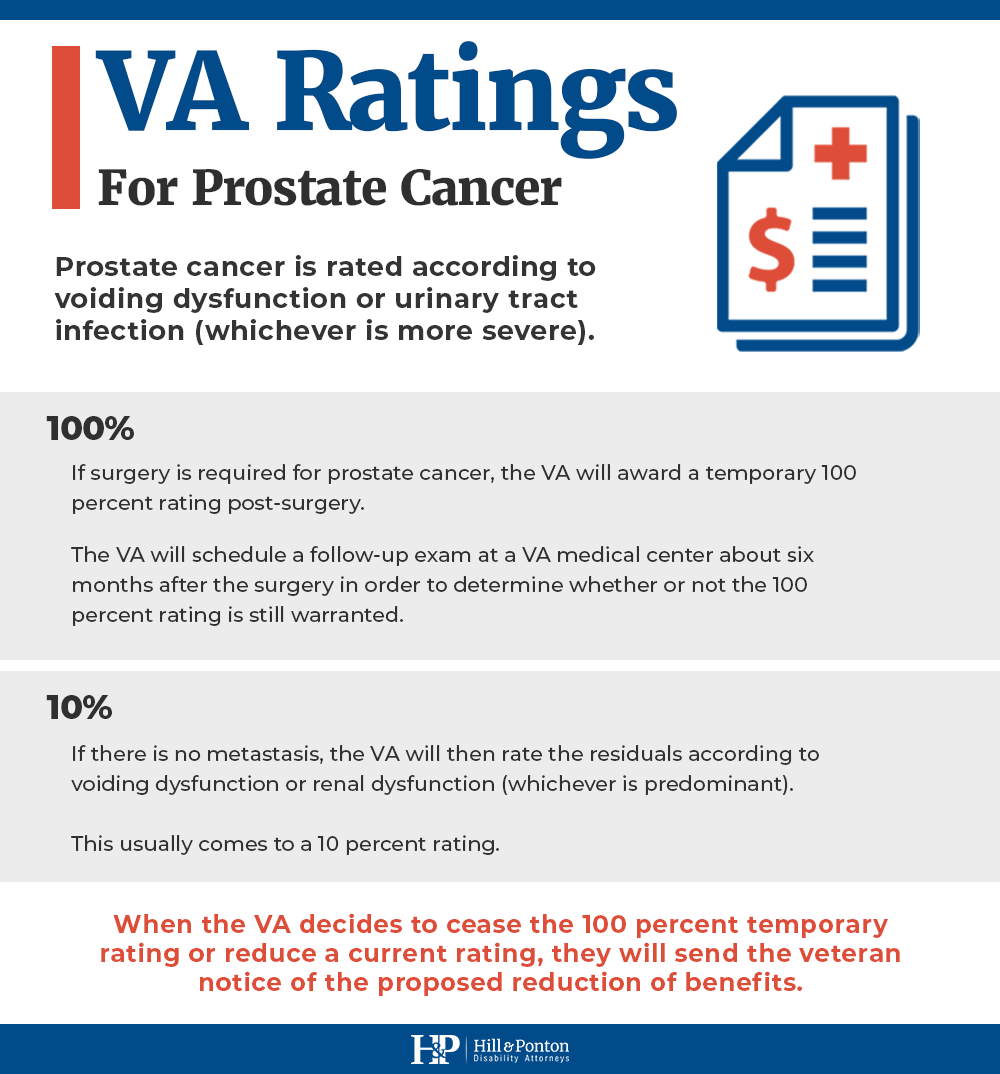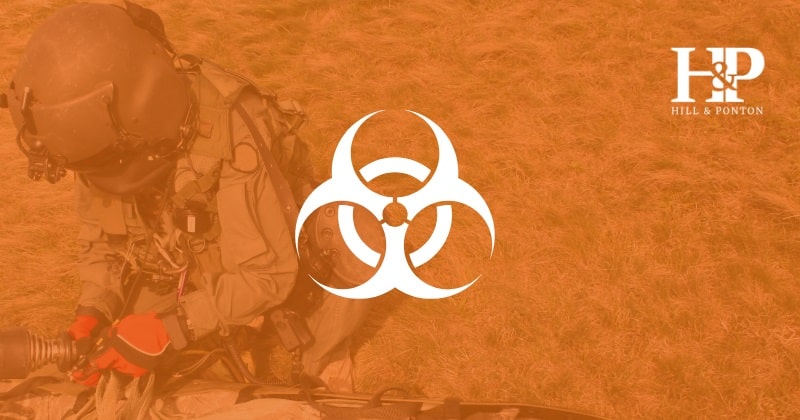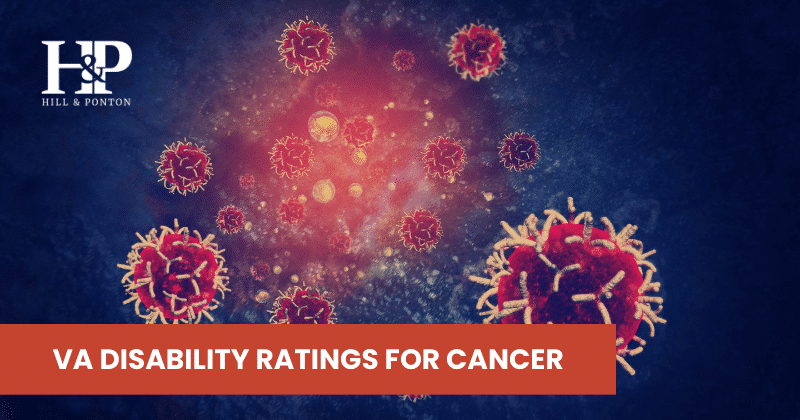Prostate cancer is the second leading cause of cancer-related deaths among men in the United States. According to the American Cancer Society, approximately one in nine men will be diagnosed with this disease in their lifetime, with the average diagnosis occurring in their 60s. Unfortunately, many Vietnam veterans exposed to Agent Orange are now suffering from prostate cancer and other health conditions linked to their service.
Agent Orange, an herbicide contaminated with the toxin TCDD, has been linked to a range of severe health problems. As part of the VA’s list of presumptive diseases, veterans exposed to Agent Orange are automatically eligible for benefits if diagnosed with prostate cancer. This guide explains how the VA rates prostate cancer, what veterans need to know about their eligibility, and the additional benefits available.
How VA Rates Prostate Cancer
The VA evaluates prostate cancer from 10 to 100% under its rating system for genitourinary conditions (38 CFR §4.115a). Ratings are based on the severity of symptoms and the type of treatment residuals experienced by the veteran.

Temporary 100% Rating
Veterans undergoing surgery or active treatment for prostate cancer are awarded a temporary total 100% disability rating. This rating continues during treatment and for six months after treatment concludes.
Residual Ratings
Once active treatment ends, the VA assesses residuals, which may include:
- Voiding Dysfunction: Veterans requiring absorbent materials changed more than four times per day may qualify for a 60% rating.
- Urinary Frequency: Veterans who urinate hourly or wake more than five times per night may receive a rating up to 40%.
- Erectile Dysfunction: Typically rated at 0%, but veterans may qualify for Special Monthly Compensation (SMC).
For a detailed guide on how to secure a 60% rating for prostate cancer based on voiding dysfunction, read our 60% VA Rating for Prostate Cancer Guide.
Veterans can submit medical evidence, such as the Disability Benefits Questionnaire (DBQ) for Prostate Cancer, to document residual symptoms and support their claims.
Is Prostate Cancer Presumptive?
Prostate cancer is considered a presumptive condition for certain veterans exposed to Agent Orange or other toxic substances during military service. This means the VA presumes a connection between the veteran’s service and their diagnosis.
Vietnam Veterans
Vietnam veterans are at a significantly higher risk of developing prostate cancer, especially aggressive forms of the disease. Research conducted at the Portland VA Medical Center and Oregon Health and Science University has shown a clear link between Agent Orange exposure and prostate cancer.
VA presumes that veterans who served in Vietnam, along with certain other locations where Agent Orange was stored or sprayed, were exposed to the herbicide. This presumption makes it easier for veterans to secure service connection for prostate cancer.
Blue Water Navy and Thailand Veterans
The presumption of exposure to Agent Orange has expanded to include:
- Blue Water Navy Veterans: Those who served on ships in certain offshore waters of Vietnam and now qualify for benefits under the Blue Water Navy Vietnam Veterans Act.
- Thailand Veterans: Those who served near the perimeter of bases where herbicides were used.
For claims prior to 2019, Blue Water Veterans often needed additional documentation, such as deck logs or service records, to demonstrate their proximity to Vietnam’s coastline. However, the 2019 Act significantly simplifies the claims process for prostate cancer and other presumptive conditions.
These veterans may now be eligible for presumptive service connection for prostate cancer and other related conditions.
Other Presumptive Exposures
Prostate cancer may also be presumptive under other circumstances, such as exposure to contaminated water at Camp Lejeune. Veterans who served at Camp Lejeune for at least 30 cumulative days between August 1, 1953, and December 31, 1987, are eligible for presumptive service connection for prostate cancer. Learn more in our guide to Camp Lejeune Water Contamination VA benefits.
Individual Unemployability and Special Monthly Compensation
Veterans whose prostate cancer or its residuals prevent them from maintaining gainful employment may qualify for Total Disability Individual Unemployability (TDIU). This allows veterans to receive compensation at the 100% rate even if their overall rating is lower.
Additionally, veterans with severe symptoms or complications may qualify for Special Monthly Compensation (SMC), which provides additional compensation for:
- The need for aid and attendance
- Being housebound
- Loss of use of a creative organ (e.g., erectile dysfunction)
Agent Orange Exposure in the U.S.
Veterans who served at certain U.S. military installations may have been exposed to Agent Orange and its toxic components. While Agent Orange is most associated with use in Vietnam, it was also tested, stored, or used at domestic bases, including:
- Fort McClellan, Alabama
- Eglin Air Force Base, Florida
- Fort Gordon, Georgia
- Fort Drum, New York
For a full list of locations and more information on potential exposure risks, visit our page about US storage facilities for herbicides.
Denied Benefits? How to Get Help
Navigating the VA’s claims process can be challenging, but you don’t have to face it alone. At Hill & Ponton, we’ve helped thousands of veterans secure the benefits they deserve, including those affected by Agent Orange. If you’re a Vietnam veteran with prostate cancer who has been denied benefits or is seeking a higher rating, contact us for a free case evaluation.




